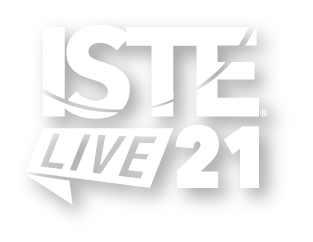

3 Ways to Engage All Stakeholders in Digital Citizenship |
Listen and learn : Panel
Cynthia Braley Dominic Caguioa Allison Jonas
With remote and online learning here to stay, digital citizenship becomes even more crucial. Learn about a multitiered approach that helps empower all stakeholders in becoming proactive digital citizens — as a parent, student, teacher or administrator — and that goes beyond Digital Citizenship Week!
| Audience: | Coaches, Principals/head teachers, Technology coordinators/facilitators |
| Skill level: | Beginner |
| Attendee devices: | Devices useful |
| Attendee device specification: | Smartphone: Android, iOS, Windows Laptop: Chromebook, Mac, PC Tablet: Android, iOS, Windows |
| Topic: | Digital citizenship |
| Grade level: | PK-12 |
| ISTE Standards: | For Education Leaders: Equity and Citizenship Advocate
Citizen
Digital Citizen
|
Participants will learn:
1. How to promote and advance digital citizenship not just during Digital Citizenship Week by learning how presenters engage students in daily digital citizenship practices that are aligned to the school's systems in place such as morning assemblies, awards assemblies, in addition to integration of digital citizenship in online instruction.
2. Engage partners and parents/families by providing workshops and webinars geared towards tech balance and family engagement.
3. Empower district and school administrators in embedding digital citizenship in their instructional and operational leadership at their schools.
In this panel that represents a broad range of roles and contexts , presenters will take turns unpacking the ISTE Standard that directly relate to their role/context and give real-life examples backed by multimedia artifacts and articulate the process of their digital citizenship implementation and the impact it has on their stakeholders.
Next, presenters will highlight the multi-tiered and calibrated approach to digital citizenship by making connections between each of the roles/contexts and how they all come into play at the school, thereby providing a common understanding of digital citizenship especially at a time when parents and families are now directly involved and participating in their child's classroom experiences.
Lastly, the presenters will tie it altogether by bringing it back to the ISTE Standards and heatmapping where in the district the individual sub-indicators of each standard have been implemented and identifying areas of growth as well as next steps to replicate and scale those strategies and practices that currently work in the presenters' contexts.
The Digital Citizenship Handbook for School Leaders by Mike Ribble and Marty Park. This book was the focus of our book study prior to the school closures in March 2020 and helped us plan for emergency remote instruction. As we continued on with this at the end of the school year, we made a conscious decision that for this new school year, our theme and focus for our pilot schools will be "Digital Citizen," hence strategies and resources for DigCit all year long and not just during DigCit Week in October.


Dominic Caguioa is a coordinator of instructional leadership support for the Los Angeles Unified School District’s (LAUSD) Instructional Technology Initiative (ITI). In this role, he leads the ITI team in designing and delivering professional learning around expansion of computer science, advancement of digital citizenship and implementation of the ISTE Standards, among many other edtech initiatives, to serve the over 40,000 educators and leaders of LAUSD. He also coordinates systemwide edtech efforts focused on localized implementation through direct support for school leadership teams, teacher leader and edtech coaches cohorts, and community learning for pilot schools. Caguioa’s work to expand computer science extends beyond LAUSD. He has been providing computer science fundamentals workshops in California through Code.org, bringing the core concepts of computational thinking and computer science to elementary schools to increase participation of underserved and underrepresented students in computer science. He also supports Code.org’s professional learning facilitators in the U.S., providing a "train the trainer" approach in preparing these facilitators to lead computer science fundamentals workshops. He’s a National Board Certified Teacher, and has also worked with the National Board for Professional Teaching Standards as a consultant. In his spare time, Caguioa is starting an education nonprofit in his home country, the Philippines, to provide edtech learning opportunities for kids and adults.
